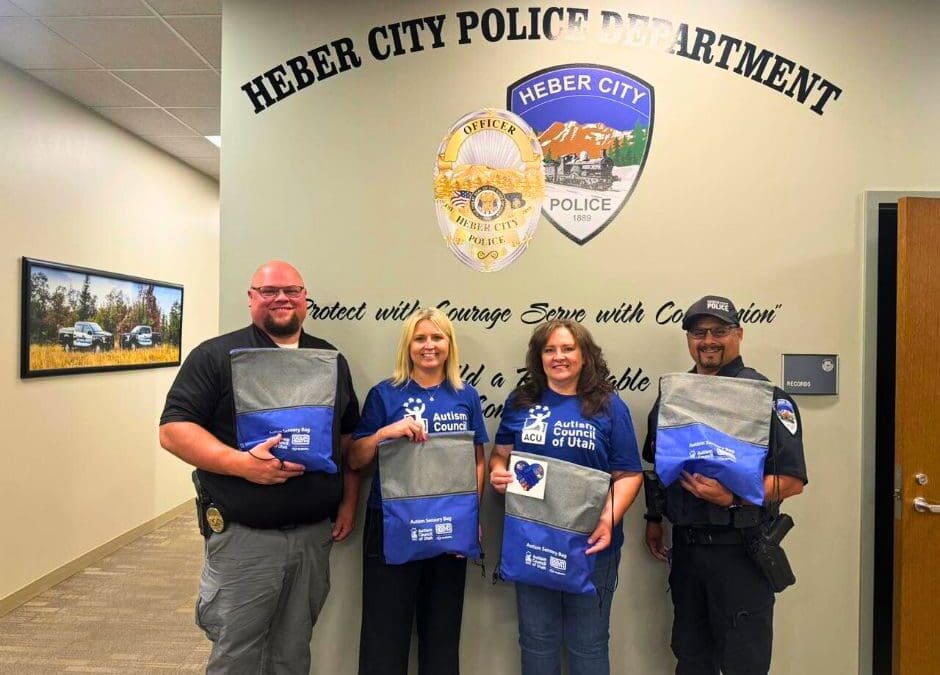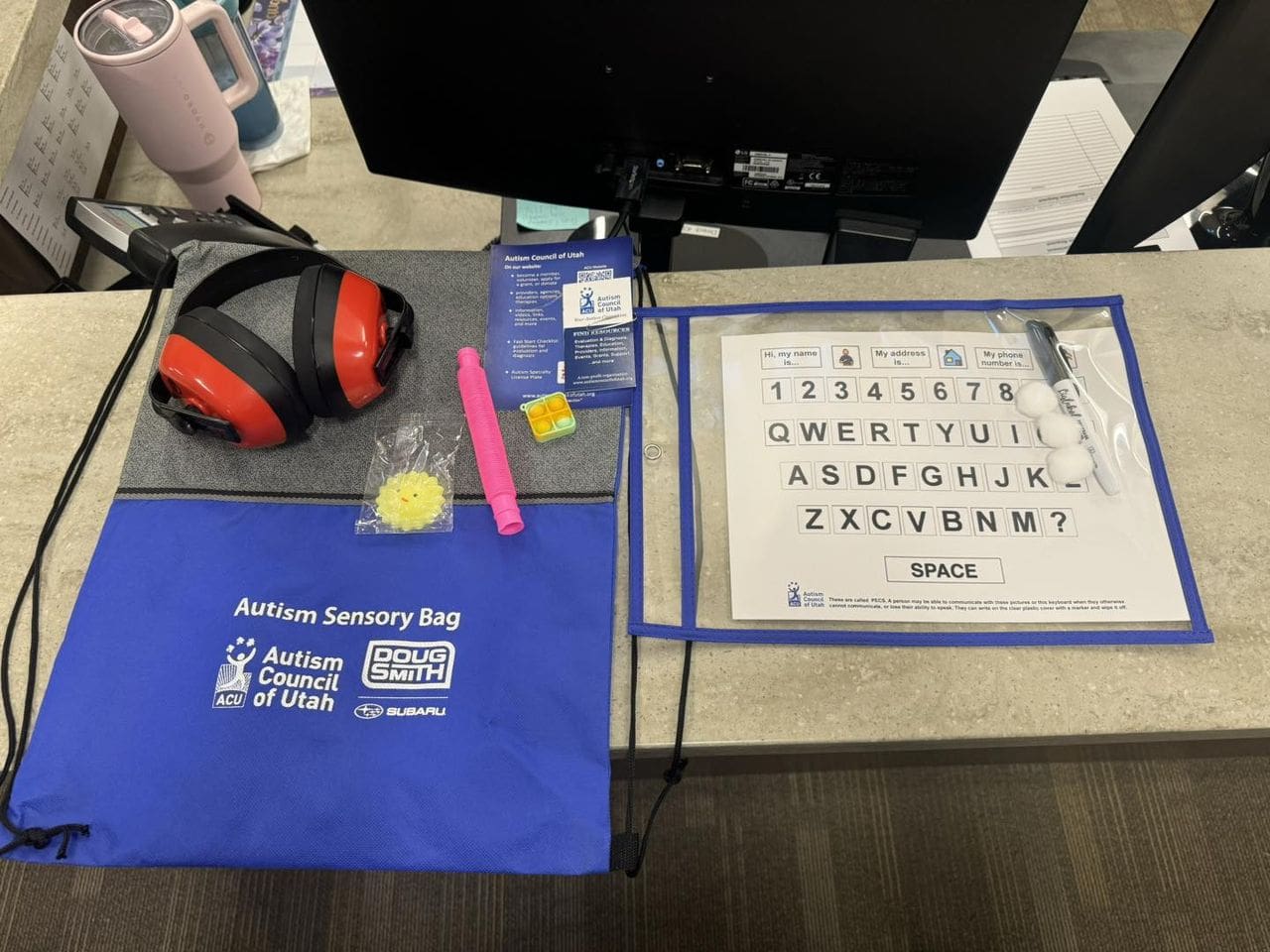Police & Fire
Summit County bridges the law and mental health with mobile crisis teams and intervention training

Photo: HeberCityPoliceDepartment
PARK CITY, Utah — According to the National Alliance of Mental Illness (NAMI), the state of Utah has reported 550,000 adults with a mental health condition. Even more detrimental, is that 1 in 4 people with a serious mental illness has been arrested by the police at some point in their lifetime. Crisis intervention programs started back in the late 90s, but the work is ever changing. Summit and Wasatch counties have been expanding their support tools to support mental crisis events throughout the community.
Last month, the Autism Council of Utah provided the Heber City Police Department with 39 sensory bags, intended to assist officers in communicating with and calming individuals with autism. These bags are part of a broader initiative to support vulnerable individuals in the community, including those with special needs or mental health conditions.

Adding to these efforts, with Wasatch Behavioral Health’s Mobile Crisis Outreach Team (MCOT), the Sheriff’s Office has been equipping all deputies with the skills needed to effectively respond to mental health emergencies. The collaboration, which took off in 2021, provides all deputies 40 hours of specialized training to become a Crisis Intervention Team (CIT) officer, a designation that enhances their ability to handle crises involving mental health issues safely and compassionately.
“This training is essential for ensuring that our deputies can respond appropriately to a variety of situations,” said Felicia Sotelo, a crisis intervention instructor with the Summit County Sheriff’s Office. “Our role is to maintain safety, and having MCOT as a resource allows us to ensure that individuals in crisis receive the mental health support they need.”
The Sheriff’s Office has long recognized the importance of specialized training in addressing mental health issues within the community. The partnership with MCOT, which provides expert care in situations where mental health needs extend beyond law enforcement’s expertise, is a key component of this approach. Deputies are trained to stabilize a situation, then transition care to MCOT professionals who can offer the necessary support.
This focus on mental health is further reinforced by the department’s ongoing training in de-escalation techniques and autism awareness. These initiatives are designed to prepare deputies for a wide range of scenarios, from mental health crises to interactions with individuals on the autism spectrum.
“We also offer a confidential online form where families can share important information about their loved ones, such as those on the autism spectrum or with conditions like dementia,” Sotelo added. “This helps us respond more effectively in emergencies.”
Sotelo emphasized the department’s dedication to both community safety and the well-being of individuals in crisis, stating, “We want the community to feel supported and to know that help is available.”
For immediate mental health support call 988 and for immediate support if there is a safety issue or concern, call 911.



















